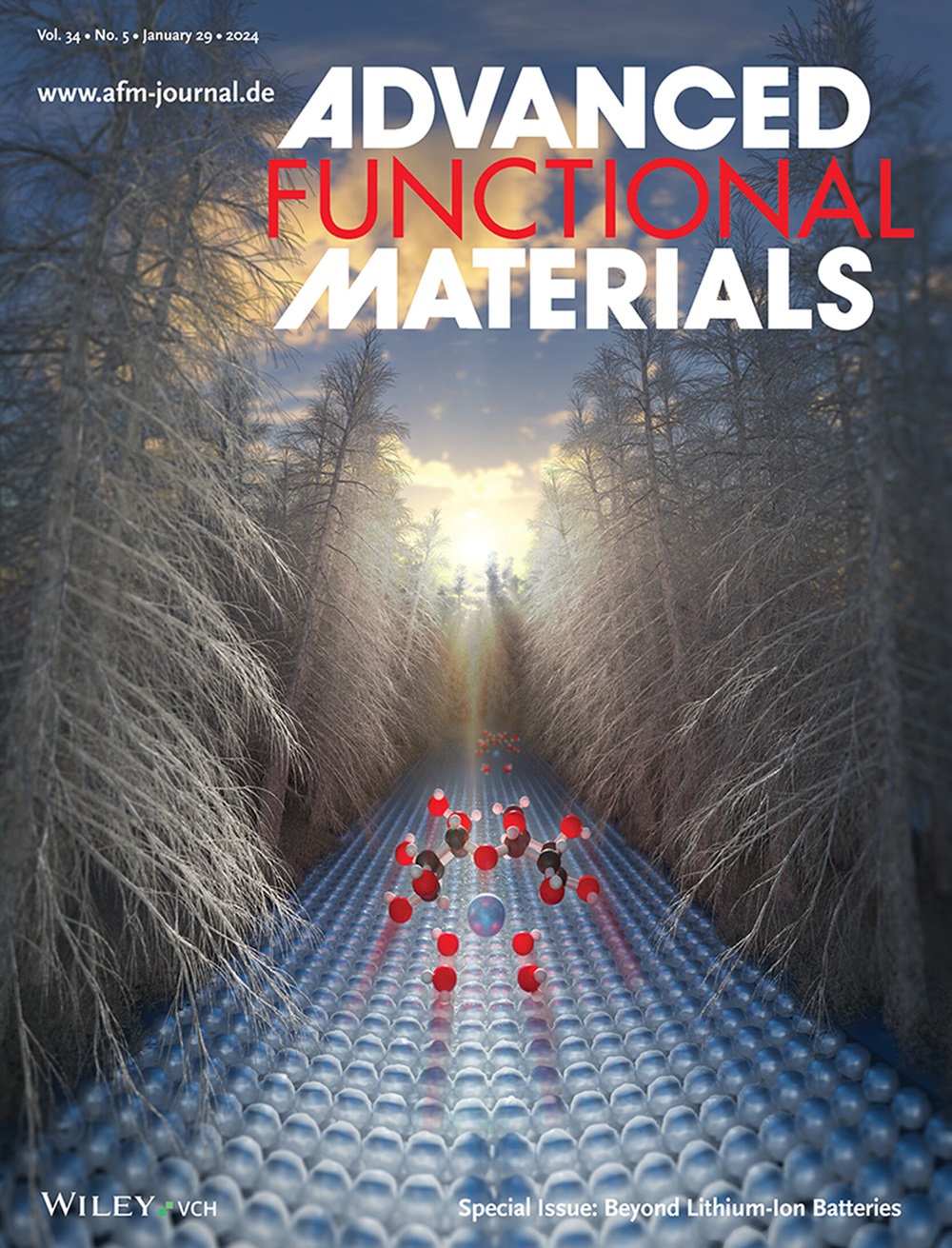Defect-Induced Selectivity Modulation Using Copper Triazole Molecular Frameworks for Electrochemical CO2 Reduction
IF 18.5
1区 材料科学
Q1 CHEMISTRY, MULTIDISCIPLINARY
引用次数: 0
Abstract
Metal–organic frameworks (MOFs) are considered promising electrocatalytic materials due to their adjustable coordination bonds between metal ions and organic ligands. The abundance of metal centers within MOFs offers potential active sites. However, the limited availability of adsorption sites in the case of fully coordinated metal ions might lead to insufficient electrocatalytic activity. The selectivity is tuned during the electrochemical CO2 reduction reaction (eCO2RR) using Cu-1H-1,2,3-triazole MOF from C1 products to C2+ products by generating defects to enable a local increase in CO* coverage, thus improving eCO2RR performance. The catalyst exhibits ≈78.4% of total Faradaic efficiency for C2+ products at −200 mA cm−2 current density in 1.0 m KOH as electrolyte.

利用三唑铜分子框架进行电化学CO2还原的缺陷诱导选择性调制
金属有机骨架(MOFs)由于其在金属离子和有机配体之间具有可调节的配位键而被认为是很有前途的电催化材料。mof内丰富的金属中心提供了潜在的活性位点。然而,在全配位金属离子的情况下,有限的吸附位点可能导致电催化活性不足。利用cu - 1h -1,2,3-三唑MOF进行电化学CO2还原反应(eCO2RR)时,通过产生缺陷使CO*覆盖率局部增加,从而调整了选择性,从而提高了eCO2RR的性能。在- 200 mA cm - 2电流密度和1.0 m KOH条件下,该催化剂对C2+产物的总法拉第效率为≈78.4%。
本文章由计算机程序翻译,如有差异,请以英文原文为准。
求助全文
约1分钟内获得全文
求助全文
来源期刊

Advanced Functional Materials
工程技术-材料科学:综合
CiteScore
29.50
自引率
4.20%
发文量
2086
审稿时长
2.1 months
期刊介绍:
Firmly established as a top-tier materials science journal, Advanced Functional Materials reports breakthrough research in all aspects of materials science, including nanotechnology, chemistry, physics, and biology every week.
Advanced Functional Materials is known for its rapid and fair peer review, quality content, and high impact, making it the first choice of the international materials science community.
 求助内容:
求助内容: 应助结果提醒方式:
应助结果提醒方式:


